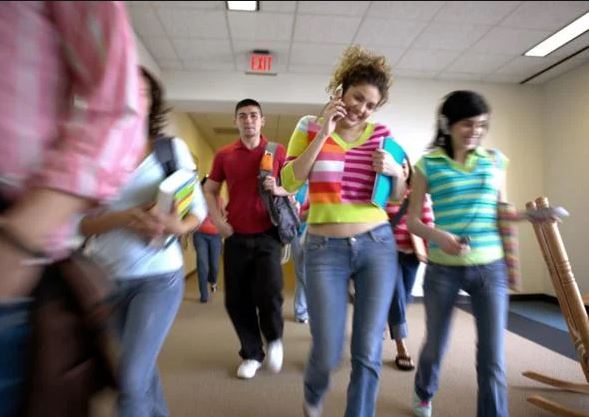
Kids are Kids
When I look back and reflect upon what have investigated over the course of LIBE 447b, it is has been a journey towards a better understanding as to the not only the role of a Teacher-Librarian (TL) but also an exploration as to some of the concerns regarding the move towards Standards-Based Learning and Core Competencies assessment in the current “re-boot” of the BC educational curriculum. At the heart of all of this change lies an underlying truth that “kids are kids” and that it is very unlikely that all kids possess the universal intrinsic motivation to “exceed” in all subject matters. What remains constant is that in public education, as in most endevours, personal relationships matter the most in motivating and inspiring learners.
How Best to Support Teachers from the Learnings Commons
Teacher-Librarians have the unique ability to be the “Renaissance Person” of a school. The TL often has a degree or a background in a particular subject and may have focused their teaching experience in certain areas, but the TL, by the nature of the occupation must also be a generalist with the mindset of a curator of truthful knowledge. The TL often as the ability and expertise to gather resources, package useful classroom material and provide the infrastructure and space to foster collegial learning communities. The Teacher-Librarian is the “Hub” of a school community and the TL can make use of that role and their expertise to assist classroom teachers in the building.
Intrinsic or Extrinsic, Relationships are Key
There is a debate as to what is needed most for today’s 21st Century learner. Current trends foster the idea that all students should be intrinsically motivated and be responsible for their own learning. Others realize that adolescence is a unique period in one’s life, full of distractions and impulses that may get in the way of learning. What is key though, is the relationship that the classroom teacher forms with their students. Regardless of pedagogical leanings, most educators understand that, and are always balancing the demands of their jobs to maximize opportunities to develop and foster those relationships.
Power of Relationships – edutopia.org
My Vision Project
For my Vision Project, I intend to update and fine tune my comprehensive online Social Studies 8 course to match with the new curricular changes in BC. My online course is designed with manageable, age appropriate non-fiction readings, supported with teacher and student friendly worksheets (including adapted versions) and supporting videos to expand upon topics presented. I plan to include short inquiry projects at the end of each unit of study and provide scaffolding supports in the form of curated, online research sites to avoid the “black hole” on student online research. The aim of this is to provide teachers with more time to focus on relationships and to take away some of the burden of prep work.
The online course will be included on my personal webpage, which has been made available to the public for over 15 years, and contains teaching materials and resources for a variety of courses ranging from Science, to Socials, to Math and Psychology. These shared materials follow my own personal teaching history and a philosophy that all teachers are in this profession together and in an age of easy digital access, why not share what resources are available with colleagues? That is one of the goals of all Teacher-Librarians, to share knowledge and resources publicly, free of charge, with no real limitations. All of my resources that I share can be edited and adapted by anyone who chooses to make use of them and the goal is to take some of the pressure, time and energy away from “prep work” so that classroom teachers can focus on what matters most; their students.
Bibliography and Works Cited
edutopia.org, ” The Power of Relationships in Schools”, https://www.edutopia.org/video/power-relationships-schools
Froehlich, Thomas Joseph. “Ten Lessons for the Age of Disinformation.” Navigating Fake News, Alternative Facts, and Misinformation in a Post-Truth World. IGI Global, 2020. 36-88.
Kirschner, Paul A., and Jeroen JG van Merriënboer. “Do learners really know best? Urban legends in education.” Educational psychologist 48.3 (2013): 169-183.
Riedling, Ann Marlow, Loretta Shake, and Cynthia Houston. Reference skills for the school librarian: Tools and tips. ABC-CLIO, 2013.
Stellenboch University, “Use of Smartphones in Classrooms Impacts Academic Performance, Oct. 16, 2017, youtube: https://www.youtube.com/watch?v=SJAUwjiZNfg
This is a thoughtful post that paves the way into your Final Vision Project. I agree with you that building meaningful relationships is our most important work. I have always maintained that it is about the connections, not the collection! I look forward to seeing what you create.